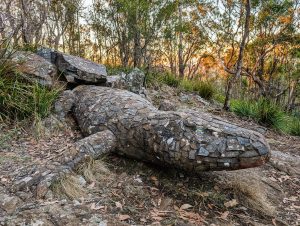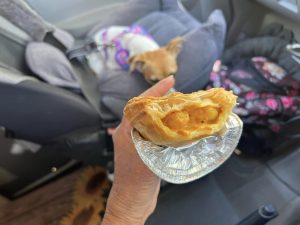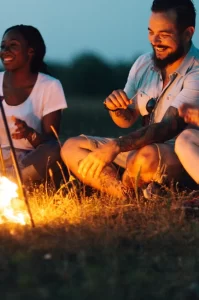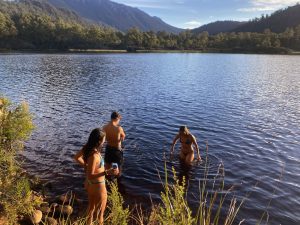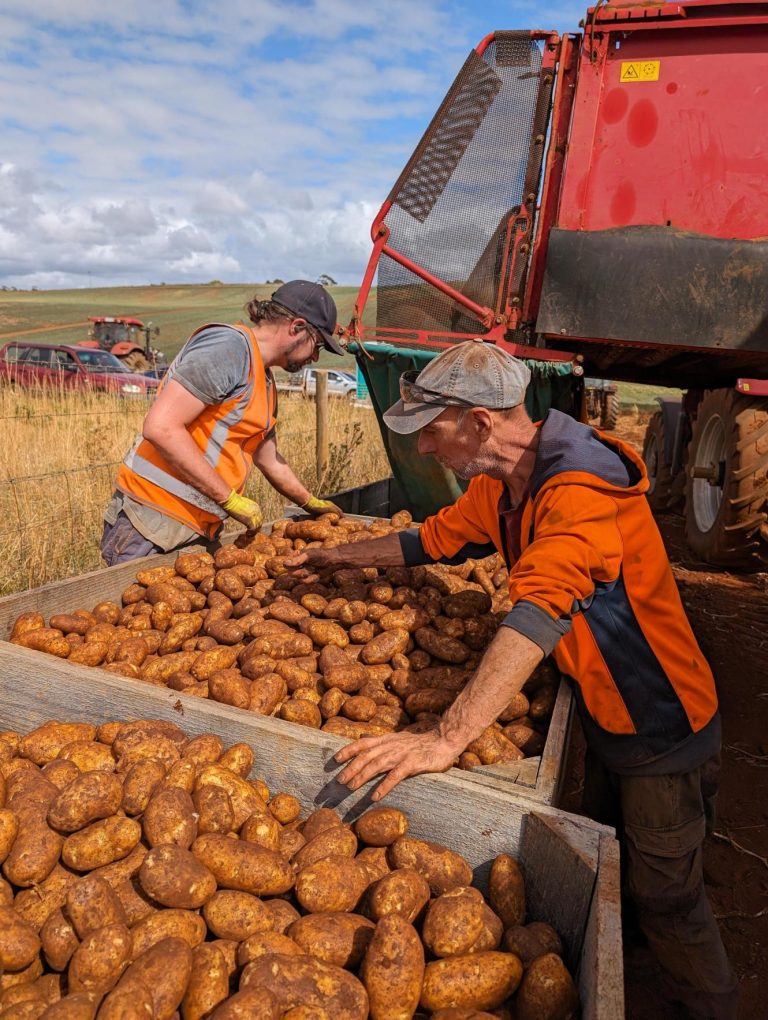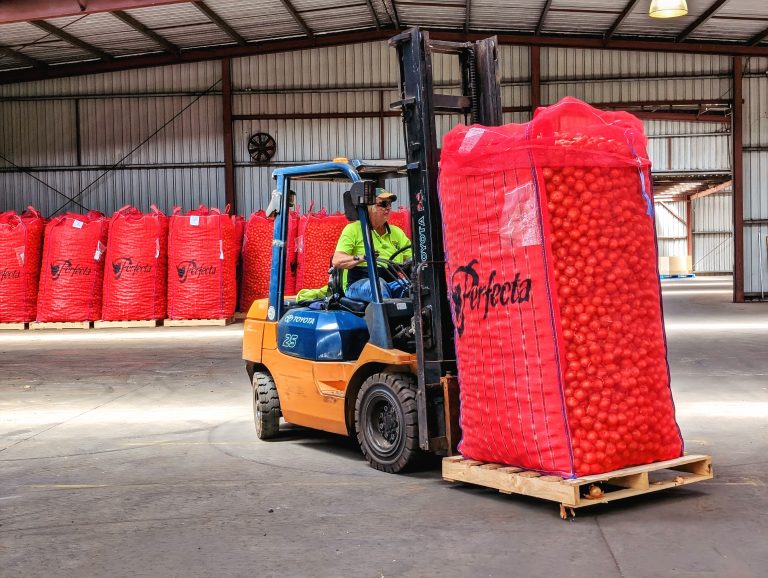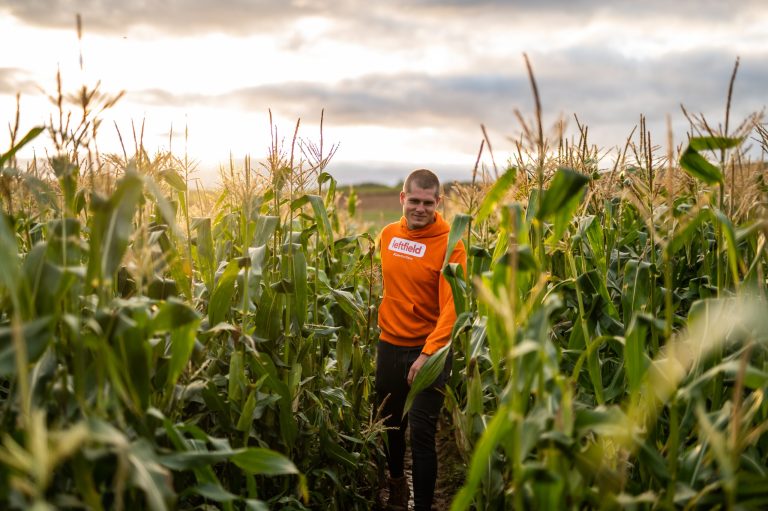As you set your sights on the picturesque landscapes of Australia, particularly the lush fields of Tasmania, having your own set of wheels is not just a convenience — it’s your ticket to freedom (and company policy here at Left Field). A reliable second-hand car doesn’t just facilitate exploration, due to very little public transport, it’s essential for securing farm work on the island, where the journey between scenic farms and hidden spots is part of the adventure.
But let’s put the brakes on for a moment. Buying a pre-loved vehicle requires careful navigation to avoid the bumps and scams along the way. Whether you’re a local Aussie or a backpacker from afar, these insider hints and tips will help steer you toward a sound purchase and ensure you’re ready to hit the ground driving. But before we do, we’ve got a real-life story to share, and it’s a lesson we’ve seen many times. One of our own crew bought an old car for $3,000 without getting it checked. Just a week later, the car broke down. The fix? A whopping $5,000 because the part was rare for such an old model.
Imagine this: You find a car for $3,000. It’s old but you buy it without checking it properly because it’s cheap. A week later, boom, it breaks down. Bad luck, it’s an old car and the part that’s broken is hard to find and super expensive.
Here’s the crunch: fixing it costs you over $5,000. More than what you paid for the car! And because the car’s broken, you can’t get to work. Two weeks of no work means no money – that’s another $3,000 gone.
So you see, trying to save some bucks at the start can end up costing you heaps more. You lose your car, your cash, and you can’t work.
We’re not talking fancy stuff here – this is basic. Get a newer car. Check it with a mechanic first. This might cost a bit more now, but it saves you a ton of money and stress later. And if you ever want to sell it, a checked and reliable car sells faster and keeps its value.


We’re here to help guide you to better decisions and make smart choices, not to see you stranded and out of pocket, losing your hard-earned cash.
Should You Buy a Car More Than 10 Years Old?
When buying a used car for transportation, remember to look beyond the car’s mileage, service history, and outward condition to its age. Newer cars (5-10 years old), which are safer and more fuel-efficient, can be a smarter investment since they’re likely to be more reliable in the long term.
Vehicles around five to ten years old hit the sweet spot for value, reliability and safety — they’ve already undergone most of their depreciation but may still have some warranty left. While older, classic cars may appear to be a bargain, they could come with hidden maintenance costs (and parts are often more costly), so it’s important to have any potential purchase inspected properly.
With Australia’s vast landscapes and remote farm locations, having a dependable car is essential. Aim for the best balance between affordability and reliability to ensure your mobility doesn’t become a hindrance to your working adventure.
Sticking To a Budget Vs Safety & Reliability
When searching for a used car in Australia on a budget of $10,000 and under, prioritising finding a vehicle that is not only a good value but also equipped with essential safety features is essential. Key safety features to look for include multiple airbags, anti-lock braking systems (ABS), and electronic stability control (ESC), which is mandatory in all new passenger cars sold in Australia since November 2011. These features are especially important for those who are adjusting to driving in Australia, as they provide additional protection while you’re getting accustomed to the roads. Click here for the Top 10 used first cars priced under $10K.
Registration and Insurance: Legal Essentials
Make sure the vehicle is registered, as driving an unregistered car is illegal and can result in hefty fines. Transfer the registration to your name immediately after purchase. Compulsory Third Party (CTP) insurance is essential, and consider additional coverage for peace of mind.
When you’re a backpacker in Tasmania, securing insurance for your car goes beyond just fulfilling a legal requirement – it’s about ensuring your financial protection and peace of mind. Mandatory (third party) insurance covers liability for injuries to others, but it’s crucial to consider additional coverage for vehicle repairs, theft, and third-party property damage, which can lead to significant costs if you’re at fault in an accident. Insurance can also include medical benefits, crucial if you lack access to public healthcare or if your travel insurance falls short. Moreover, with roadside assistance often included, you can venture into Tasmania’s remote areas without the stress of potential breakdowns. And in a place with diverse climates and the possibility of natural disasters, insurance is your safeguard against the unexpected, allowing you to focus on your adventure and work without the worry of financial setbacks from unforeseen events.
Know What You Want Vs What You Need
Research is your roadmap. Before you dive into the market, know the type of vehicle that suits your adventure. Are you conquering the rugged Outback, or cruising the scenic coasts of Tasmania? This determines whether you need a sturdy 4WD or a fuel-efficient hatchback. Websites like RedBook or CarSales can provide valuable information on pricing and what to expect for your budget.
Pre-Purchase Inspection: Your Safety Net



Never judge a car by its shiny coat. Always opt for a professional pre-purchase inspection. This can reveal hidden mechanical problems that could turn your dream car into a roadside nightmare. It might cost a bit upfront, but it’s a drop in the ocean compared to the cost of major repairs down the road (we see this all the time). Organisations such as RACT (Royal Automobile Club of Tasmania) and RedBook Inspect offer comprehensive pre-purchase inspections and are thorough and trusted in the industry.
Test Drive: Feel the Wheels
Take the car for a spin and listen to the story it tells. Squeaks, rattles, or hesitation can be the prologue to future problems. Check the brakes, clutch, and steering for a direct insight into the car’s health. Read more on How to Test Drive a Car.
Uncover Hidden Car History
Inspect the logbook and service history. A well-documented history is a sign of a well-maintained vehicle. Verify the Vehicle Identification Number (VIN) matches the registration papers. Inconsistencies here could indicate a stolen vehicle or one that’s been written off.
Avoid Rental Cars
Renting a car can bleed your budget dry real fast, especially if you’re journeying long-term. Buying a car might seem daunting, but it’s an investment. When you’re ready to hang up your keys, you can sell it and recoup some of your money – an option you don’t have with rentals.
Consider the Mainland Car Market
Sometimes, the Tasmanian car market can be as tight as a drum. Broadening your horizon to the mainland might unveil more options and better prices. Yes, there’s the added cost of crossing over with the Spirit of Tasmania, but it could save you bucks in the bigger picture.
Backpacker’s Car Buying Checklist for Australian Road Trips
- Make sure you set a realistic budget or make a purchase within your means
- Work out what you think the car is worth before you inspect it (be prepared to walk away if the car doesn’t meet your expectations)
- Don’t look at more than three cars a day, you’ll quickly grow confused and fatigued (increasing your chance of settling for less)
- Take along a friend or someone to help you feel confident or someone with car experience
- Always question anything that doesn’t feel right, and if you have a bad feeling – walk away (even though you may love the car)
- Choose a car with the best safety features first, rather than features that are conveniences (e.g. airbag protection for all occupants, both front and rear; electronic stability control)
- Look up your car on www.howsafeisyourcar.com.au so you can compare safety ratings and features compared to other cars
- Get a clear understanding of what car will suit your farm work requirements
- Ensure you can afford to own a certain type of vehicle by calculating the daily/weekly/monthly/yearly running costs (e.g. insurance, registration, fuel consumption and maintenance)
- Once you have decided on a car – always ask for a receipt, fill in the registration transfer documents while still with the seller of the car and ask for photo ID (e.g. Driver’s Licence or Passport) with a valid address
Final Thoughts: Drive the Extra Mile for Peace of Mind
Remember, a car is your ticket to freedom, but it shouldn’t cost your peace of mind. Take the time to find the right one, and you’ll have more than just a car — you’ll have a trusty companion for every mile and smile on your Australian escapade.



Safe travels and happy car hunting – may your wheels roll as freely as your adventurous spirit! And when you’re ready to hit the Tasmanian trails, consider joining us at Left Field for an experience that’s more than just work – it’s a journey woven with community, culture, and the shared joy of discovery.
On a tight budget?


